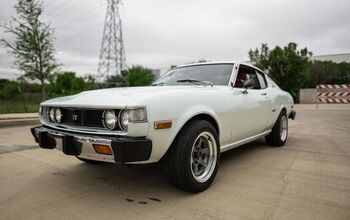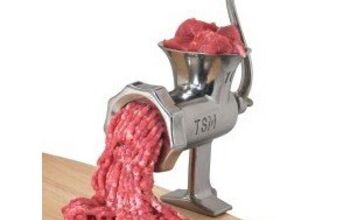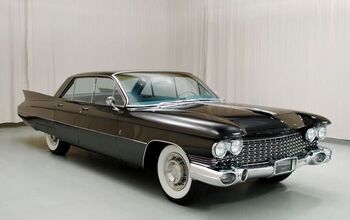General Motors Death Watch 8: Banzai!
Last week, we learned that embattled GM Supremo Rick Wagoner was flying to Tokyo to discuss the possibility of 'sharing' Toyota's hybrid technology. GM officially denied the story. Today, we learn that Wagoner did indeed meet with Toyota President Fujio Cho (on a Sunday no less) to discuss "fuel cell development". In the news biz, this is what you call going from bad to worse.
Hydrogen fuel cell vehicles are decades way from actualization. Despite billions of dollars in development funding, engineers have yet to devise a hydrogen fuel cell efficient/practical enough for anything other than a large commercial bus. While not insurmountable, the challenge requires entirely new technologies and materials, which must then be subjected to the same rigor that applies to gas-powered propulsion: performance testing, manufacture, packaging, mechanical reliability, recyclability and more. And then there are safety concerns, especially at pump time.
Yes, there is that. If GM unveiled a workable hydrogen fuel cell vehicle this afternoon, there'd be less than five hydrogen refilling stations in the country able to fuel it, and none of them are open to the public. In thirty or forty years, sure, the technology and infrastructure for hydrogen-powered cars, truck and SUV's might be in place. By then, we may even have hundreds of thousands of small alternative power plants cranking out hydrogen for the masses, vastly reducing our dependence on foreign oil.
By then, GM may be out of business. Wagoner's company is in the fight for its life RIGHT NOW. It needs to cut costs RIGHT NOW. It needs to manufacture popular products RIGHT NOW. Anything GM's Wagoneers can do to stop the rot RIGHT NOW– closing factories, shuttering divisions, re-negotiating contracts, selling lame models at fire sale prices, shortening product cycles, re-badging Opel, Holden or competitor's products; divesting GMAC, going into Chapter 11, anything– is better than pie-in-the-sky environmentalism.
Why in the world would Wagoner and Co. take time away from the current crisis to play footsie with GM's number one competitor, chasing an unproven technology that can not possibly improve The General's bottom line for at least a decade, if ever? I can't quite bring myself to believe that Wagoner's travels are nothing more than tree-hugging propaganda designed to get investors to forget about the commercial cancer threatening to destroy the entire company. But what other explanation is there?
Perhaps the hydrogen story is a cover for the real story, which was the first story: GM IS buying hybrid technology from the Japanese. If true, why not admit it? At this point, the market would welcome any effort on GM's part to get back in the game– even if it meant re-badging Toyota hybrids as GM products and, well, selling them. (Of course, the UAW might have a thing or two to say about that.) Would the buying public care if their Chevy was a Toyota? They don't care that it's Korean. Would customers complain if their Tahoe had a Toyota drivetrain? Probably not.
Perhaps Toyota is negotiating to buy GM. Or part of GM. Or maybe GM is going to buy part of Toyota, and then pay a few billion dollars not to buy the rest of it. Or maybe the trip is like that peace meeting before the Japanese bombed Pearl Harbor; an attempt to lull GM into a stupor– as if it isn't already in one. Despite Toyota's offer to increase their prices to help GM's bottom line, despite all this technological sharing stuff, Mr. Wagoner would do well to remember that the sushi knives are always out for GM.
If I sound confused, well, I am. I see no evidence that GM has a master plan to reverse the fact that it spends too much money making cars, trucks and SUV's that less and less people want to buy. I see no evidence that Mr. Wagoner's international movements are part of this [yet unexplained] strategy. I've asked GM to respond here, without editing, without success. Of course, the pages of the New York Times, Detroit News or Wall Street Journal would be just as good…
Meanwhile, I would advise Wagoner to make another sort of trip, to the vast airfields outside of Detroit. There he will find acre upon acre filled with brand new GM product. Strolling through these vast lots, Wagoner would get a humbling perspective on GM's industrial might (and accounting procedures). Who could help but admire the organizational genius needed to create a sea of entirely serviceable merchandise? He might also understand that his company's survival, and the survival of all who work for GM, depends on finding happy owners for each and every vehicle. Either that or crushing them all and starting again.
More by Robert Farago
Latest Car Reviews
Read moreLatest Product Reviews
Read moreRecent Comments
- Jalop1991 Our MaintenanceCosts has been a smug know-it-all.
- MaintenanceCosts If I were shopping in this segment it would be for one of two reasons, each of which would drive a specific answer.Door 1: I all of a sudden have both a megacommute and a big salary cut and need to absolutely minimize TCO. Answer: base Corolla Hybrid. (Although in this scenario the cheapest thing would probably be to keep our already-paid-for Bolt and somehow live with one car.)Door 2: I need to use my toy car to commute, because we move somewhere where I can't do it on the bike, and don't want to rely on an old BMW every morning or pay the ensuing maintenance costs™. Answer: Civic Si. (Although if this scenario really happened to me it would probably be an up-trimmed Civic Si, aka a base manual Acura Integra.)
- El scotto Mobile homes are built using a great deal of industrial grade glues. As a former trailer-lord I know they can out gas for years. Mobile homes and leased Kias/Sentras may be responsible for some of the responses in here.
- El scotto Bah to all the worrywarts. A perfect used car for a young lady living near the ocean. "Atlantic Avenue" and "twisty's" are rarely used in the same sentence. Better than the Jeep she really wants.
- 3-On-The-Tree I’ll take a naturally aspirated car because turbos are potential maintenance headaches. Expensive to fix and extra wear, heat, pressure on the engine. Currently have a 2010 Corolla and it is easy to work on, just changed the alternator an it didn’t require any special tools an lots of room.





































Comments
Join the conversation